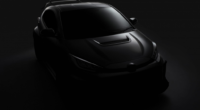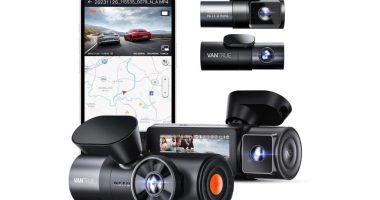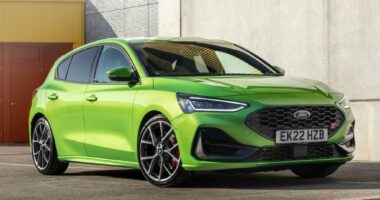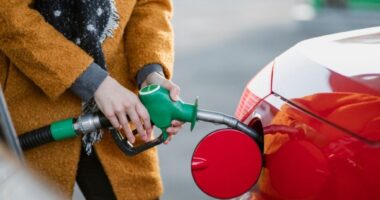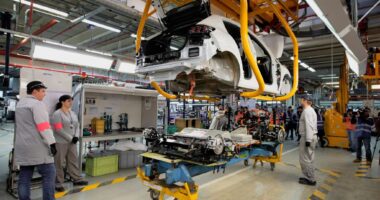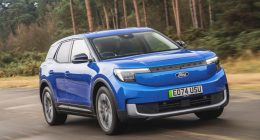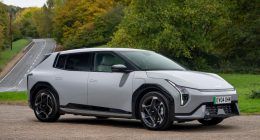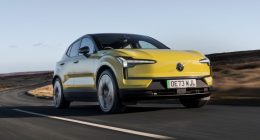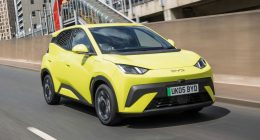Northern Ireland’s new car sales rose slightly last year compared to coronavirus-hit 2020, with 36,616 passenger vehicles joining the local road network in the twelve months to December.
That figure was up 425 on the previous year, according to the latest figures published by the Society of Motor Manufacturers and Traders (SMMT) – the trade association for the motor industry in the UK.
The vehicle that accounted for most sales here last month was the Hyundai Kona crossover (46), followed by its larger brother the Tucson (45), the Nissan Juke (42) and the Japanese firm’s all-new Qashqai (41).
Hyundai was also the standout performer since January 2021 as it topped the Northern Ireland sales charts overall, its Tucson outperforming the Volkswagen Golf and Ford Focus by some considerable margin.
The 1.17% growth enjoyed by the local market was narrowly up on the UK’s 1% for 2021 as a whole. 1.65 million new cars were registered in the UK last year but despite such high numbers it still was not enough to prevent the automotive sector having to endure one of its toughest periods since 1992.
Registrations by private buyers increased by 7.4%, while those made by businesses and large fleet operators slumped by 4.4% and 4.7% respectively, with this being apportioned to supply shortages.
Petrol-powered vehicles, including mild hybrids, remain motorists’ most popular powertrain both here and across the water; they accounted for 58.3% of new registrations in 2021.
Diesel-powered cars, including mild hybrid vehicles, made up 14.2% of the total market share, followed by Electric Vehicles (11.6%), Hybrid Electric Vehicles (8.9%) and finally Plug-in Hybrid Electric Vehicles (7%).
Without doubt, electric vehicles were the real winner of 2021 as the number of BEVs driven off dealer forecourts was greatest than at any time over the previous five years combined.
190,727 BEVs found new homes, along with 114,554 plug-in hybrids, meaning 18.5% of all new cars registered in 2021 can be plugged in.
Commenting on the figures, the SMMT’s Chief Executive, Mike Hawes, said: “It has been another desperately disappointing year for the car industry as COVID continues to cast a pall over any recovery.
“Manufacturers continue to battle myriad challenges, with tougher trading arrangements, accelerating technology shifts and, above all, the global semiconductor shortage which is decimating supply.
“Despite the challenges, the undeniable bright spot is the growth in electric car uptake. A record-breaking year for the cleanest, greenest vehicles is testament to the investment made by the industry over the past decade and the inherent attractiveness of the technology.
“The models are there, with two of every five new car models now able to be plugged in, drivers have the widest choice ever and industry is working hard to overcome COVID-related supply constraints.”
Mr Hawes expressed concern at recent decisions by the government to reduce the Plug-in Car Grant from £2,500 to £1,500, and reduce the number of cars that are eligible for the incentive. The time it is taking to expand the country’s charging infrastructure – and up-date existing hardware – is also causing alarm bells to sound.
“The biggest obstacle to our shared net zero ambitions is not product availability, however, but cost and charging infrastructure,” he added.
“Recent cuts to incentives and home charging grants should be reversed and we need to boost the roll out of public on-street charging with mandated targets, providing every driver, wherever they live, with the assurance they can charge where they want and when they want.”

